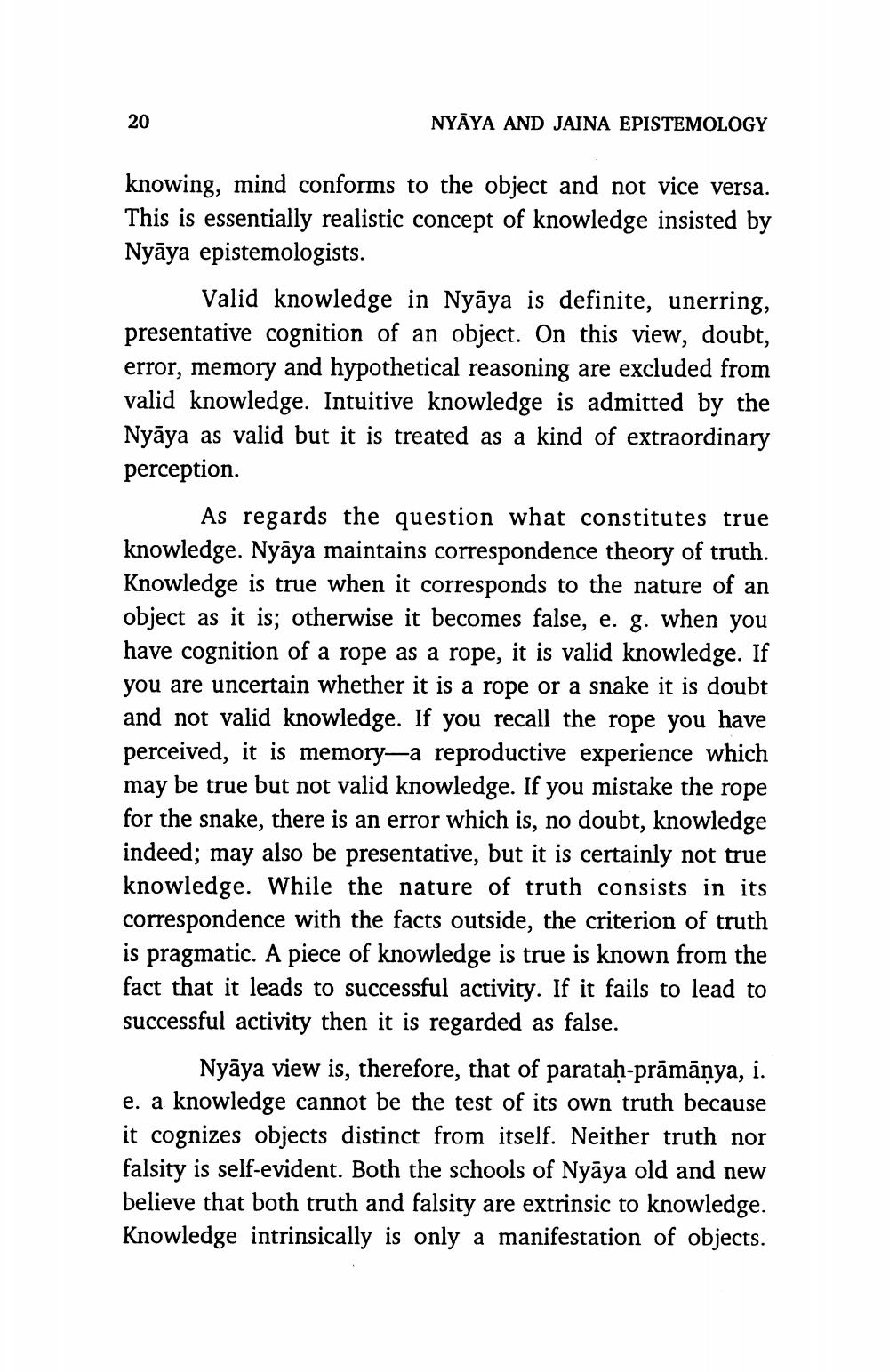________________
20
NYAYA AND JAINA EPISTEMOLOGY
knowing, mind conforms to the object and not vice versa. This is essentially realistic concept of knowledge insisted by Nyaya epistemologists.
Valid knowledge in Nyaya is definite, unerring, presentative cognition of an object. On this view, doubt, error, memory and hypothetical reasoning are excluded from valid knowledge. Intuitive knowledge is admitted by the Nyaya as valid but it is treated as a kind of extraordinary perception.
As regards the question what constitutes true knowledge. Nyāya maintains correspondence theory of truth. Knowledge is true when it corresponds to the nature of an object as it is; otherwise it becomes false, e. g. when you have cognition of a rope as a rope, it is valid knowledge. If you are uncertain whether it is a rope or a snake it is doubt and not valid knowledge. If you recall the rope you have perceived, it is memory-a reproductive experience which may be true but not valid knowledge. If you mistake the rope for the snake, there is an error which is, no doubt, knowledge indeed; may also be presentative, but it is certainly not true knowledge. While the nature of truth consists in its correspondence with the facts outside, the criterion of truth is pragmatic. A piece of knowledge is true is known from the fact that it leads to successful activity. If it fails to lead to successful activity then it is regarded as false.
Nyaya view is, therefore, that of parataḥ-prāmāṇya, i. e. a knowledge cannot be the test of its own truth because it cognizes objects distinct from itself. Neither truth nor falsity is self-evident. Both the schools of Nyaya old and new believe that both truth and falsity are extrinsic to knowledge. Knowledge intrinsically is only a manifestation of objects.




